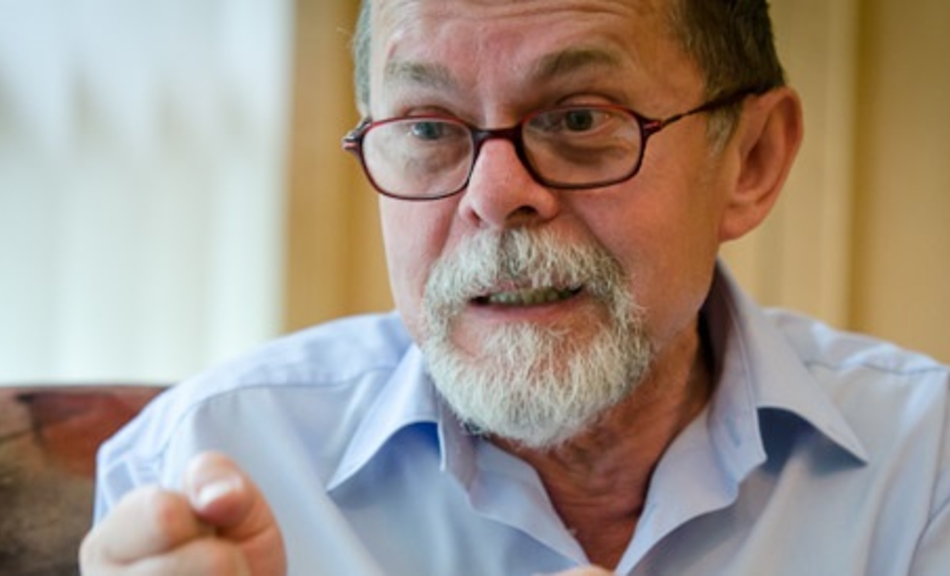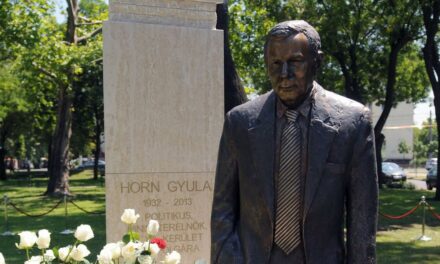Ruralization has increasingly become a defining element of the mothering technique of political communication in recent years.
The two-thirds victory of Fidesz, now achieved for the fourth time in a row, was based more and more on the votes of the countryside. The liberal opposition does not have any particular problem with the production of the narrative, the essence of which is that there is the intellectually sophisticated Budapest with its high culture and competent voters, and there is the miserable, backward rural voters who are second-rate from a material, physical, spiritual, moral, and spiritual point of view, manipulated by voters. mass.
One of the most dramatic pathological patterns of Westernized modernity is reflected in general opinion throughout the Western world, and it was also reflected in the "folk-urban" conflict in Hungary at the time. But what could be at the bottom of this conflict beam? Before I begin to explain everything in more detail, it is a remarkable circumstance in itself that the supporters of liberal democracy, who preach full tolerance, apparently make it more and more open to the public that anyone who does not follow their lofty values is in the first place not suitable to involve himself in public affairs, and especially not to decide who will lead the country as a voting citizen. It is important to record this, because in the meantime these liberal forces fear democracy precisely from those who have now exercised their rights democratically.
If we add to this that they believe all this because they believe that the rural people can only be manipulated in the first place, and as a result of this manipulation, Fidesz has now achieved a two-thirds majority for the fourth time, then they claim that in the so-called democracy the decision it is not decided by the people, but by the power of the invisible powers that manipulate them.
But if this is true, then they themselves loudly declare that democracy is actually just a show, where the people are just a reference point for the rival ruling blocs. So I'm just saying to the respected liberal camp that the whirlwinds of discourse they've started can take the discourses of political communication in a very delicate and very dangerous direction, and this danger threatens them more than anyone else. Presumably, this was felt by some, such as László Mérő, who wanted to see and experience rural life up close, and had respectably honest self-criticism of himself and his liberal colleagues in Budapest after counting votes in a village in Zemplén.
His gesture is therefore worthy of respect, but this gesture may also include the fact that he also believes that the vigorous continuation of ruralization would not be fortunate. On the one hand, because it apparently leads to the opposite consequences, and on the other hand, because this liberal strategy can bring to the surface connections capable of fundamentally shaking the entire construction of democracy, which would cause the liberal camp to commit collective suicide.
Just as Jobbik has already committed this suicide, because it graciously offered itself to those tectonic historical forces, the explosion of which could have catastrophic consequences for the liberals. Over the past 150 years, the Hungarian political system has basically followed the same patterns (these patterns were based on a false trinity, liberal, social, conservative parties manufactured by an invisible global power), and the essence of these patterns was that a "people's nation" should never be able to form a government as an independent force. In the 1990 election, this people-nation voted three ways, as it will now, in 2022.
But after that, first the left-wing People's Nation was forced to leave the MSZP led by Imre Pozsgay and Zoltán Bíró, and then the right-wing People's Nation from the MDF led by István Csurka. However, the third popular-national beam did not leave Fidesz, but instead sent most of its ruling elites back to the global SZDSZ's local agent network, thereby undertaking the elementary global backlash that nearly destroyed Fidesz in 1994.
But this sacrifice made at that time can today give a historically significant chance for the people-nation to be able to remain in government for a long time. To understand this, after the fourth two-thirds victory, perhaps we can declare the evident connection that Fidesz is actually a historical "grand coalition" experiment, in which this people-nation, which has been consistently "banned" from the nation's governing structure for the past century and a half, could gain a permanent majority for the first time. .
In the current election, it was revealed in a dramatic way that while Viktor Orbán is able to lead his grand coalition based on complicated and delicate balances to victory after victory with "seamless" adjustments, the "result" of the first attempt of those who "marched" against him was that they fared much worse together. like when they ran separately, and the people-nation voted three ways again, just like in 1990. Some of them, out of compulsion and helplessness, go to Jobbik, another to the latest "withdrawal" fragment of the people-nation, but the majority of the real people-nation trusts Fidesz more and more in the wake of the last decade. The new world war, which is increasingly all-encompassing, spectacularly shows that the basis of life is the land and its patient, in-depth cultivation, which is based on the countryside.
If ever, now is the time for a people-national strategy based on this.
(The author is an economist)
Featured image: teveszmek.blog.hu












